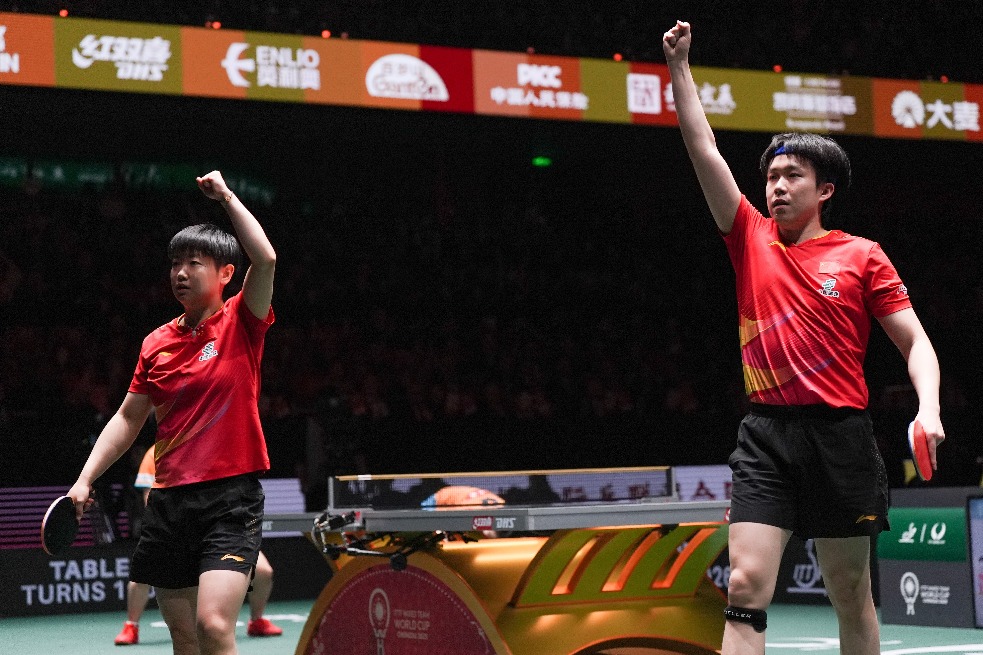What we can expect from Hong Kong's next CE


With the election of the sixth-term chief executive-elect on Sunday, the Hong Kong Special Administrative Region can look forward to a brighter future.
According to practice, the new chief executive is expected to take office on July 1, which will also mark the 25th anniversary of Hong Kong's return to the motherland. The next five years will be crucial for Hong Kong, as the next chief executive will have to fulfill the historical duty of taking the SAR's development forward.
Among the many tasks facing the new Hong Kong chief executive, three are especially important.
The first is to launch Hong Kong's health code with tracking function, because that is very important for resuming normal travel between Hong Kong and the Chinese mainland. The health code will facilitate quarantine-free cross-boundary travel, and help Hong Kong residents convert their health information to Guangdong province's "Yuekang code", so they can travel to the southern Chinese province.
Advanced technology allows users to align Hong Kong COVID-19 protocols with those of the mainland, but SAR residents' fear of breach of privacy and skeptic attitude toward such apps have been holding back the authorities from introducing the health code. This is a challenge the next chief executive has to overcome, perhaps by taking measures to change the "mindset" of the skeptics and convincing the public, in general, of adequate data protection laws on both sides of the border.
Second, in terms of administrative structure reform, the Hong Kong SAR government needs to establish a bureau in charge of grassroots affairs across the special administrative region, in order to know and better understand the problems people at the grassroots level face and distribute the necessary resources accordingly.
There is much to do at the grassroots level in Hong Kong, including providing more housing, improving people's livelihoods, and strengthening eldercare and medical care. Many of these things used to be done by nongovernmental organizations, including some patriotic associations and political groups.
But despite doing a lot of work at the grassroots level, those NGOs could not reflect the needs of the community to the government.
Hence, a bureau in charge of grassroots affairs is badly needed to solicit different views and act on them for the benefit of Hong Kong residents, especially lower-income groups. The bureau will also help engage the wider public and build a more harmonious society.
The third task concerns promotion of traditional culture. With its splendid history of about 5,000 years, traditional Chinese culture is important for building the moral character of youths and instilling in them a strong sense of national identity.
China is a country with a rich cultural heritage, and the central government has been taking measures to promote traditional Chinese culture across the country. The Ministry of Education, for example, launched a guideline for introducing traditional Chinese culture in primary and secondary school curricula in 2021. Hopefully, Hong Kong will move with the rest of the country in this regard.
Cultural self-confidence and 5,000 years of cultural heritage concern not only Hong Kong but also the entire country. Therefore, the next Hong Kong chief executive should promote traditional Chinese culture in the SAR.
The new chief executive should also engage with the wider public and map out concrete policy targets, so as to build a better, more prosperous Hong Kong.
The views don't necessarily reflect those of China Daily.
The author is a Taiwan-born Hong Kong member to the Chinese People's Political Consultative Conference National Committee and honorary research fellow at the Institute of China Studies, Chinese University of Hong Kong. This is an excerpt from her interview with China Daily's Zhao Manfeng.
If you have a specific expertise, or would like to share your thought about our stories, then send us your writings at opinion@chinadaily.com.cn, and comment@chinadaily.com.cn.


































